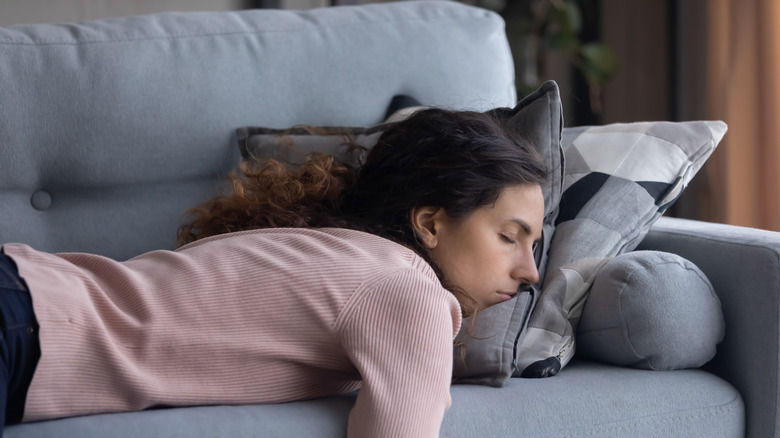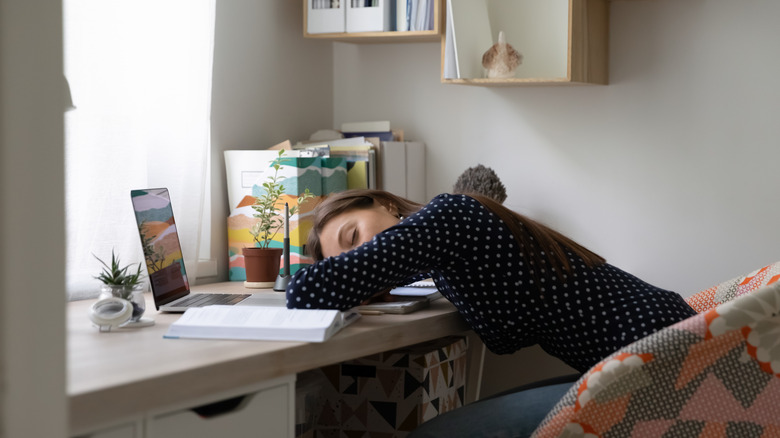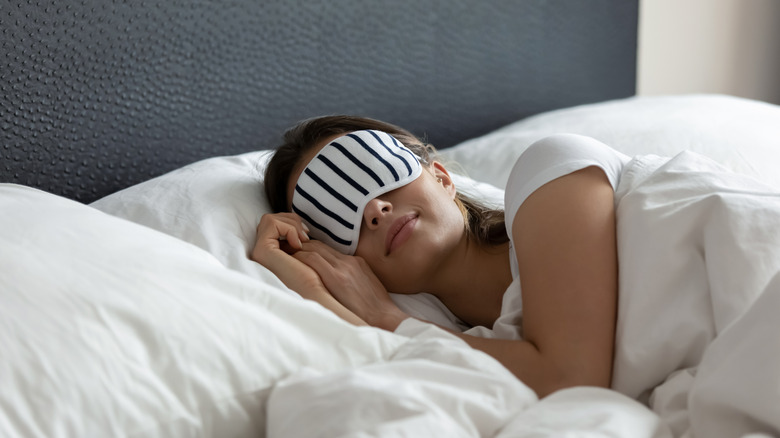
fizkes/Shutterstock
By Sophie McEvoy/Sept. 3, 2021 10:53 am EDT
Napping may be associated most with babies, but it’s actually a pretty helpful strategy for adults who tend to experience that mid-afternoon slump (via Sleep). According to WebMD, half an hour of shut eye can provide a variety of health benefits, including improvements in memory, consistency, mood, and learning. And for many of us, it simply feels good.
However, the longer you decide to nap, the closer you are to experiencing sleep inertia (via Healthline). This is when you wake up with that groggy feeling that makes you continuously want to hit snooze rather than get out of bed. So making sure your nap is between 10 and 30 minutes will give you the optimum boost of energy, which some even say is better than caffeine.
But if you’re trying to combat the aftereffects of a restless night’s sleep rather than a brief lull in energy, a nap won’t relieve your sleep deprivation (via Nextgov).
If you nap for a short amount of time, you don't spend enough of it in a very important stage of sleep

This is according to a new study conducted by Kimberly Fenn (posted at Oxford Academic), an associate professor at Michigan State University and the director of its Sleep and Learning Lab. Studying the naps that last between 30 and 60 minutes, she and her team discovered that this short amount of sleep “didn’t show measurable effects on relieving the effects of sleep deprivation.”
Sleep deprivation is when you are getting less than the recommended amount of sleep, which is usually around seven to eight hours for adults (via Sleep Foundation). The effects of sleep deprivation can range from a lack of energy and mood changes to worsened memory and a reduced attention span.
The reason a nap this short doesn’t relieve these symptoms is down to the amount of time you spend in Slow-wave sleep (SWS). As Fenn notes, this is the most important stage of sleep. “When individuals go to sleep each night, they will soon enter into SWS and spend a substantial amount of time in this stage.” This is where the body enters a relaxed state, as Nextgov notes, where your muscles are relaxed and your breathing and heart rate slow down.
Those who had a full night's sleep outperformed those who had a 30-minute nap

The study, which consisted of 275 college-aged participants, were split into three groups (via Oxford Academic). One group were sent home to have a full night’s sleep, while the other two stayed in the lab and experienced sleep deprivation. One was given the option to take a nap, while the other was not. Before sleeping, the groups performed cognitive tasks. When they awoke from sleep the next morning, they repeated these tasks, which were based on attention and memory.
Fenn found that the group who had the option to nap “still suffered the effects of sleep deprivation and made significantly more errors on the tasks than their counterparts who went home and obtained a full night of sleep.” However, she also noted that “every 10-minute increase in Slow-wave sleep reduced errors after interruptions by about 4%.”
But even those who managed to reach SWS during their naps still underperformed compared to those who had a full night’s sleep. So while naps may be good at giving a boost of energy to those who have had a good night’s sleep, they seem to not be a cure for sleep deprivation.
Source: Read Full Article
